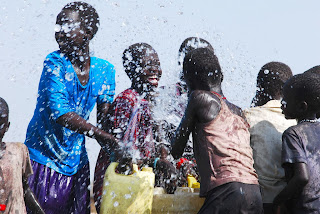The day I set myself on fire, I knew I had a problem.
 I was thirty-seven years old and spending sixteen hours a day working for a CEO with whom I didn’t see eye-to-eye, in a company at which I didn’t feel I could be myself, in an industry that held no appeal for me. Go figure.
I was thirty-seven years old and spending sixteen hours a day working for a CEO with whom I didn’t see eye-to-eye, in a company at which I didn’t feel I could be myself, in an industry that held no appeal for me. Go figure.
The morning began like most. The alarm clock began its annoying bleet-bleet-bleet at 4:00 a.m. I quickly groped for the clock radio, as not to wake my husband, Jeff, or Spike, who was sleeping in the center of the bed on her back with her hind legs spread-eagle and her front paws in praying mantis position. I took a moment to envy her carefree existence.
Still exhausted, I rubbed the sleep from my eyes and mentally fumbled to understand why it was that I was getting up so early. I had begun this insane routine a few months back in hopes of actually catching up on all of my work—warped logic not only because it didn’t work, but also because I didn’t give a rat’s ass about my job.
 I was thirty-seven years old and spending sixteen hours a day working for a CEO with whom I didn’t see eye-to-eye, in a company at which I didn’t feel I could be myself, in an industry that held no appeal for me. Go figure.
I was thirty-seven years old and spending sixteen hours a day working for a CEO with whom I didn’t see eye-to-eye, in a company at which I didn’t feel I could be myself, in an industry that held no appeal for me. Go figure. I had joined this small video game publisher six months prior as vice president of marketing, leaving behind the more stable environment of an educational publishing conglomerate. Initially, when the recruiter’s call came through, I laughed. Video games? Me?
Then the compensation package was quoted and I stopped laughing. I thought about the hefty increase in salary, the potential for a big bonus and an even bigger stock payout. I also thought about the thrill of coming into this “turn around situation,” and how invigorating it would be to join the management team that would foster positive change within the organization. But mostly, I thought about the money.
In a matter of minutes computerized war games had gone from being a senseless form of violent entertainment, if not a bit of a joke, to being, well, not so bad. After all, they were just fantasy, I told myself, a way to kill time and relieve stress.
“Oh puh-leeze,” I could hear my conscience chortling from deep within me. I ignored the little bugger and signed the employment contract the day it was offered. My plan was to do this job for a couple of years, work hard to help the company succeed, vest my stock options, and take the money and run.
Then I could solve world hunger.
By the end of my first month, I knew I had made a huge mistake. But the embarrassment of leaving so soon after starting, and the promise of big bucks kept me miserably in place. I slogged my way through work, day after day—and often on the weekends, too—trying to focus on the positive. But none of the rewards, including the money, offered any sense of authentic joy or lasting satisfaction.
Realizing that the snooze button was due to activate soon, I turned off the alarm and slipped out of bed. After a quick shower, I pulled my freshly fluffed and heated robe from the dryer and wrapped myself in it. I walked to our small second bedroom, where our makeshift meditation area was and sat cross-legged on the floor preparing to “om” my way to a state of centered calm. Lately I found that I needed this brief bit of time to just sit with my thoughts—or lack thereof—before launching into the world of animated violence.
As I lit a match to light a small candle, I accidentally dropped it. In the split second that the match fell downward, I assumed it would simply burn out as it hit the heavy fabric of my robe. Instead, the oil-based coating of the fabric softener caused a bluish flame to immediately engulf my entire lap like a flambéed dessert.
“HONEY, I’M ON FIRE!” I screeched.
Jeff launched naked from the bed. At the same time, I managed to stand up and was pulling the burning robe off my body as I made my way toward the bedroom exit. We almost collided in the hallway as I threw the robe to the floor. Jeff made a flying tackle and easily extinguished the flames.
I stood—naked and in shock—two feet from Jeff—naked and in shock—as he lay on the floor covering the terrycloth culprit. Our eyes met and we simultaneously broke into uncontrollable laughter at the absurdity of the situation. Then, just as quickly, I melted into a mass of heaving sobs.
“Life is…(sob)...too short…(sob)...to work…(sob)...at a job…(sob)...you hate!”
Having completed this insightful observation, I sank to the floor. Jeff crawled over to me and wrapped me in a hug. He rocked me in his arms and told me that no amount of money was more important than my sanity.
I resigned the following week.
Download a PDF of the first 4 chapters of Lauren's memoir, Zuzu's Petals: A True Story of Second Chances, FREE here. Click on the link below the green "Buy the Book" button. Happy reading!
Download a PDF of the first 4 chapters of Lauren's memoir, Zuzu's Petals: A True Story of Second Chances, FREE here. Click on the link below the green "Buy the Book" button. Happy reading!





